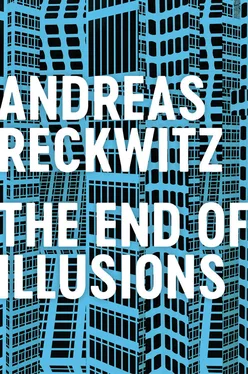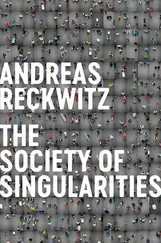Hyperculture and cultural essentialism can thus interact in a state of peaceful coexistence. However, a coexistence of this sort only seems possible if both sides systematically misunderstand one another. In other words, this can only happen if, from the perspective of market-based and self-actualization-based culturalization, identitarian movements embody just another style or another chosen identity among many others, and if, from the perspective of cultural essentialism, hyperculture is merely a particular aspect of Western societies. However, as soon as these two regimes of culturalization begin to perceive one another as contrary ways of dealing with culture – which, from a sociological perspective, they in fact are – they see themselves as being fundamentally threatened. What follows is a culture war: a struggle over culture itself.
We have thus come to the third and fourth possible modes of interaction. If cosmopolitan hyperculture recognizes the cultural-essentialist aspects of identitarian culture, then it switches over into a mode that is based on a struggle between the open society and its enemies . This is frequently the case today. Now, liberal cosmopolitans perceive cultural essentialism as totalitarian: proponents of hyperculture become aware of the fact that cultural essentialism – with its antagonism between believers and nonbelievers (between “us” and “them”) – hopes to put an end to the pluralistic game of hypercultural differences, and they are accordingly forced to revise their model of multiculturalism. Religious fundamentalism, for instance, is no longer regarded today as just another cultural lifestyle that can be freely chosen among others (and thus as a “colorful” enrichment of society); instead, it is perceived as an attack on the foundations of cosmopolitanism. Likewise, a nationalistic claim of “white supremacy” is not regarded as a welcome new option but is, rather, seen as an inimical position, and this is because it undermines, instead of supports, the ideal of equal rights and hybrid ways of life. The result is the line of conflict that divides, in Karl Popper’s terms, “the open society and its enemies.” 26
A complementary course of confrontation is pursued by the other side. In the attacks waged by various forms of cultural essentialism against cosmopolitan hyperculture, the latter is made to seem like nothing more than an expression of Western liberal decadence, which has paved the way for the permissive triumph of consumption-based individualism and has corroded national and religious communities. Hyperculture’s ever-shifting ascriptions of value, which dissolve fixed distinctions between ingroups and outgroups, and its prioritization of the individual over the collective, now seem like a threat to the collective morality that cultural-essentialist communities claim for themselves. From this perspective, the West – or the liberal cosmopolitans in one’s own country – thus become a symbol of cultural decay. Hyperculture, cosmopolitanism, and hybridity have become the preferred counterexamples from which to distance oneself. In this process, as mentioned above, former enemies within the cultural-essentialist camp repeatedly end up being surprising allies in their common cultural struggle against hyperculture: Evangelical Christian and orthodox Muslim communities will join forces in the fight against gay marriage, or diverse groups of European populists will come together in opposition to the American “cultural imperialism” of Google and CNN.
“Doing Universality” – The Culture of the General as an Alternative?
Is the juxtaposition of hyperculture and cultural essentialism inevitable? Are there other possible models of culture in today’s society? These questions are urgent, and not only because cultural essentialism is obviously problematic and dangerous – which, from the perspective of Western liberals, is easy enough to see – but also because the model of hyperculture has deficiencies of its own and thus beckons, beyond the attacks from the International of cultural essentialists, justifiable critique. 27
The two main deficiencies of hyperculture are the absence of a collective (in the strong sense), and the absence of any binding and normative notion of common cultural praxis. Hyperculture is built on an unlimited dynamic of the cultural, and the place where this dynamic is processed and appropriated is the self-actualizing individual with his or her “subjective culture.” At its extreme, this cultural model has no room for anything socially common or shared whose validity might transcend the boundaries between individuals (or the boundaries of self-selected lifestyle groups). One’s beliefs or convictions seem to be a private matter of “subjective culture,” and late-modern society as a whole should not interfere with that. Late-modern society cannot offer anything that is valuable in a binding way. It operates exclusively with abstract mechanisms: aside from general legal rules, which protect personal rights, it is in effect mostly governed by market mechanisms. On a case-by-case basis, negotiations over what is culturally valuable are ultimately handed over to market processes in the broad sense, which determine whether one element of culture or another deserves attention, status, and prestige. 28
Acknowledging the inadequacies of Culturalization I is a necessary precondition for better understanding why Culturalization II has become so attractive. Of course, every version of cultural essentialism contains the incurable problem of demarcating the boundaries of collective identity in such a way that, in extreme cases, individuality is suppressed on the inside, and outsiders are devalued and excluded in order artificially to homogenize one’s “own” culture. And, of course, such cultural essentialism attracts followers because it provides an effective weapon to those who feel left behind by hypercultural late modernity. At the same time, however, things are more complicated. Cultural communitarianism can be interpreted as an understandable response to hyperculture’s lack of collectives and norms. By resisting norms and refusing to promote any common values and goals, hyperculture runs the risk of culminating in a social structure that amounts to nothing more than consumption-based individualism. Cultural communitarianism has responded to this by reestablishing cultural communities, which attempt to fill the normative vacuum of hyperculture by reviving the old model of homogeneous collectives.
How do things currently stand with an alternative, third form of culturalization? With a type of culturalization that is oriented toward collectives and yet, at the same time , is non-essentialistic (a type of culturalization addressing a collective that does not, in other words, necessitate the existence of a homogeneous community)? Both the British cultural theorist Terry Eagleton and the French sinologist and philosopher François Jullien have pointed to just such a third model of culture, which one could call the model of cultural universality or culture as the general . 29This model has been present throughout Western modernity, but it is now on the defensive; under different conditions, however, a reappropriation of this tradition could be promising. Even if, at first glance, cultural universalism may seem obsolete or naïve, it could perhaps gain renewed currency in today’s radically pluralized late-modern societies.
If one contrasts cultural essentialism and hyperculture with cultural universality – which, again, is oriented toward collectives but is not essentialistic – a common feature of the first two models, which is otherwise easy to overlook, becomes especially apparent. In both models, what is considered culturally valuable is related to the particular and the unique – to the singular : on the one side, the particularity of communities, and on the other side, the uniqueness of cultural goods and the emphatic individuality of those seeking self-actualization. In a sense, cultural essentialism and hyperculture thus share a common Romantic heritage: the legacy of a culture of particularity and uniqueness, as it has developed since the time of Herder, Rousseau, and Schlegel. Both the hypercultural, individualistic model of culture and the essentialistic, collectivistic model can indeed be traced back to the discourses of Romanticism. The latter movement favored the self-development of the individual and the uniqueness of places, moments, and things. At the same time, it also “discovered” the idea of the Volk and the nation as cultural communities with unique values of their own. In both domains, culture was clearly associated with the particular and not with the general, for, in their critique of modern rationalism, the Romantics regarded the general as a deficiency. 30
Читать дальше









